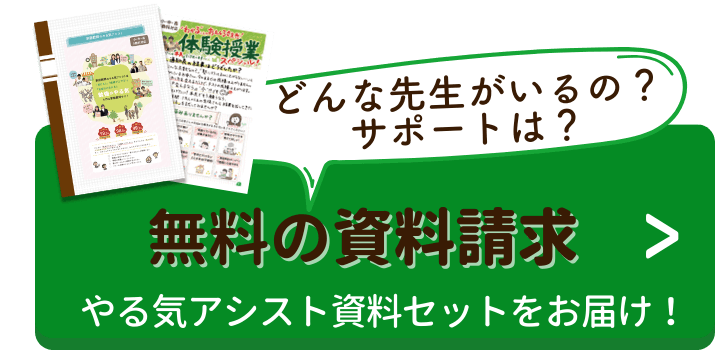






兵庫県の2023年3月実施の令和5年度(2023年度)入学者の公立高校入試問題の解説をしています。
受験勉強において、過去問を解くことはとても効果的な勉強法です。ぜひ、受験までに一度挑戦し、問題の傾向を掴んでおきましょう。合わせて、対策などをたてられるととても良いですね。
また、過去問で苦手な点が見つかった場合は、そこを中心に試験日当日までにしっかりと対策しておきましょう。
1. 会話を聞いて、その会話に続く応答として適切なものを選びなさい。会話のあとに放送される選択肢a~cから応答として適切なものを、それぞれ1つ選びなさい。(会話と選択肢は1回だけ読みます。)
No.1 [A:男性、B:女性]
A:What’s the weather tomorrow?
B:The news says that it will rain.
A:Oh, no! I want to play tennis tomorrow.
a. I’d love to.
b. That’s too bad.
c. It’s my turn.
No.2 [A:女性、B:男性]
A:Excuse me. Can I borrow five books?
B:Sorry, only three books at a time.
A:I see. How long can I keep them?
a. For five days.
b. About five books.
c. On the fifth floor.
No.3 [A:男性、B:女性]
A:Now, it’s time to start today’s club meeting.
B:Wait, Tom isn’t here.
A:It’s OK. He said he would be late.
a. Then, he didn’t attend the meeting.
b. Then, he must be on time.
c. Then, let’s begin.
No. 1(場面)翌日の天候について会話している
No. 2(場面)図書館で会話している
No. 3(場面)ミーティングを始める前に会話している
2. 会話を聞いて、その内容についての質問に答えなさい。それぞれ会話のあとに質問が続きます。その質問に対する答えとして適切なものを、次のa~dからそれぞれ1つ選びなさい。(会話と質問は2回読みます。)
No.1 [A:男性、B:女性]
A:Lucy, we need some eggs, chopsticks and dishes for tomorrow’s party.
B:I’ll buy them at the convenience store.
A:Can you buy the eggs at the supermarket in front of the station? There is a sale today.
B:OK.
A:Then, I’ll buy the chopsticks and dishes.
B:Thank you. See you later.
(Question) What is Lucy going to buy?
No.2 [A:女性、B:男性]
A:You look pale, Mike.
B:Hi, Kathy. I have a headache.
A:Oh, really? You need to go home.
B:I have to take my science report to Mr. Brown.
A:I’ll take it to his room during the lunch break.
B:Thank you. Here is my report.
(Question) Where will Kathy go for Mike during the lunch break?
No.3 [A:男性、B:女性]
A:Emily, what will you study after you graduate from high school?
B:I’m going to study Japanese food because I want to introduce it to the world. How about you, Koji?
A:I’d like to study business to be the owner of a restaurant overseas.
B:Sounds great! Then, you should keep studying English.
A:You’re right. English will be useful.
B:You can do it!
(Question) Why does Koji want to study business?
No. 1
a. Eggs.
b. Dishee.
c. Eggs and chopsticks.
d. Chopstikcs ado dishes.
No. 2
a. To her classroom.
b. To the hospital.
c. To Mike’s house.
d. To Mr. Brown’s room.
No. 3
a. He wants to graduate from school.
b. He wants to introduce Japanese food.
c. He wants to be the owner of a restaurant.
d. He wants to travel all over the world.
3. 英語による説明を聞いて、その内容についての2つの質問Question 1、Question 2に答えなさい。英文と選択肢が放送されます。英文のあとに放送される選択肢a~dから質問に対する答えとして適切なものを、それぞれ1つずつ選びなさい。(英文と選択肢は2回読みます。)
Hell, welcome to Green Zoo. I’m John, a guide at this zoo. Please look at the schedule. Now, I’ll explain today’s activities from the top. First, you can touch many kinds of rabbits from many places in the world. When you touch the rabbits, please don’t speak loudly or move suddenly. They’ll be surprised and run away. Next, you can give milk to a baby rigger. It’s afraid of the sound of cameras, so please don’t take pictures during this activity. The next two activities are very popular among visitors. But today, you cannot ride the horses in the afternoon because we need to check their health.
(Question 1 Answer)
a. One.
b. Two.
c. Three.
d. Four.
(Question 2 Answer)
a. They cannot check the schedule.
b. They cannot speak loudly.
c. They cannot move suddenly.
d. They cannot take pictures.
(場面)動物園でガイドがスケジュールの説明をしている
Question 1 How many activities can the visitors do in the afternoon today?
Question 2 What did the guide say to the visitors about the activities of the baby tiger?
1.
No.1 b
No.2 a
No.3 c
2.
No.1 a
No.2 d
No.3 c
3.
Q.1 b
Q.2 d
地域のカルチャーセンターで開催される、多文化交流フェスティバルに参加する3つのグループの代表生徒とカルチャーセンターのスティーブさんが、インターネットでミーティングをしています。あなたは、実行委員会の一員としてそのミーティングに参加しています。次の英文を読んで、あとの問いに答えなさい。
1.ミーティングの内容に合うように、次の【 】に入る適切なものを、あとのア~エからそれぞれ1つ選んで、その符号を書きなさい。
(1) If visitors want to enjoy music in the morning, they should join the event of 【 】.
(2) If visitors want something to eat, they should join the events of the Australian group or 【 】.
ア. the Chinese group
イ. Aoi’s group
ウ. Riku’s group
エ. Sakura’s group
2.あなたは、ミーティングの内容をもとに、次の図を見ながら、表を使ってイベントの場所をまとめています。次の【➀】~【③】に入るものを、あとのア~ウからそれぞれ1つ選んで、その符号を書きなさい。
ア. Enjoying Sweets
イ. Trying Ikebana
ウ. Making Japanese Paper
3. あなたは、地域に住んでいる外国人に向けて招待状を作成しました。次の[あ]、[い]に、あとのそれぞれの【 】内の語から4語を選んで並べかえ、英文を完成させなさい。
1.
(1) ア (2) ウ
(1) If visitors want to enjoy music in the morning, they should join the event of 【 】.
→(和訳)午前中に音楽を楽しみたい場合、【 】のイベントに参加すべきです。
午前中に音楽の催しをするのが中国人のグループ、午後に行うのがリクのグループである。
(2) If visitors want something to eat, they should join the events of the Australian group or 【 】.
→(和訳)何か食べたい場合、オーストラリアのグループか【 】のイベントに参加すべきです。
リクのグループが調理室を使ってライスケーキを作りそれを配ります。
2.
➀イ ②ウ ③ア
➀2つ目のアオイの発言より、エントランスの隣の小さな部屋で生け花体験をする。
②5つ目のスティーブ先生の発言より、サクラのグループはエントランスの隣の大きな部屋で和紙作り体験をする。
③スティーブ先生の最後の発言より、オーストラリア人のグループが調理室の隣の部屋を使う。
3.
[あ]able to enjoy many
[い]looking forward to seeing
[あ]be able to 動詞の原形→~することができる。willとcanのような助動詞は2つ同時に使えない。
[い]look forward to ~ing→~することが楽しみです
次の英文を読んで、あとの問いに答えなさい。
[1] At the train station, we check information on *electric bulletin boards. For example, if the train does not come on time, we will look at them to check the train is and how【➀】it is. We also get information from the *speakers. For example, when a train is coming to the station, we will hear the message, “The train is【②】. Please stand behind the yellow blocks for your safety.” Like these examples, we【③】to know the situation at the station, and such information is helpful for us.
[2] One day, a student missed some information from the speakers. It was difficult for him to hear sounds. He said, “I once had a dangerous experience at the station. When I was just getting on the train, the train closed the door. I didn’t notice that because I couldn’t hear the sound of the *departure bell. To get the information, I must look at the people around me, and then【④】. I wish there was a machine that could *change sounds into letters and images, and show them on a screen!”
[3] His wish became a real thing. A company listened to his experience, and made the machine for him. It was put on the *platform. There, when the message, ”Thank you for using our train,”was announced from the speakers, he could see it on the screen. Also, he saw the sound of the closing door on the screen. Because of this machine, he learned the sound of the closing door for the first time. He said, “Now, I can enjoy a sound that I didn’t notice before.”
[4] People who experienced this machine said, “It’s wonderful and convenient. I think children can enjoy the machine. For example, when the train is moving, they can see the letters of its sounds on the screen. In addition, foreigners can understand information more easily because English is shown to attract their attention there. I hope this machine will【⑤】.”
[5] One student’s idea has given us a chance to think about other people. The student said, “When we had meetings for the machine, I talked a lot with many people. By sharing my opinions with them, the station became more friendly to more people. Like this, if we【⑥】, I think we can make our society better.”
(注)
electric bulletin boards 電光掲示板
speakers スピーカー(装置)
departure bell 発車ベル
change ~ into … ~を…に変える
platform (駅の)プラットホーム
1. 文中の【➀】、【②】に入る語の組み合わせとして適切なものを、次のア~エから1つ選んで、その符号を書きなさい。
ア. ➀late ②arriving
イ. ➀late ②leaving
ウ. ➀much ②arriving
エ. ➀much ②leaving
2. 文中の【③】~【⑥】に入る適切なものを、次のア~オからそれぞれ1つ選んで、その符号を書きなさい。
ア. accept and respect different ideas
イ. enjoy announcing information by myself
ウ. judge what I should do
エ. see and hear information
オ. spread to other stations in Japan, too
3. 次のA~Dのイラストは、段落[3]と[4]で示されている内容を表したものです。文中で具体的に示されている順序として適切なものを、あとのア~カから1つ選んで、その符号を書きなさい。
ア. A→B→C→D
イ. A→B→D→C
ウ. A→C→B→D
エ. A→C→D→B
オ. A→D→B→C
カ. A→D→C→B
1. ア
➀は前の「電車が時間通りに来ない」を受けて、「電車がどれくらい送れるか」とするため、「how late」が正しい。
②は「電車が到着します」なので、arrivingが正しい。
2. ③エ ④ウ ⑤オ ⑥ア
③前の文で情報を「電光掲示板で見て」得ることと「スピーカーで聞いて」得ることが説明されている。
④「情報を得るためには、周囲の人を見て、それから何をすべきか判断しなければならない」
⑤空所前のthis machineは第3・4段落より、乗客にメッセージを伝える機械のこと。「この機械が日本の他の駅にも広がることを願う」とする。
⑥1人の学生の願いが鉄道会社に届き、状況が改善したという文章の趣旨を踏まえ、「さまざまな意見を受け入れ尊重すれば、社会をより良くすることができると思う」とする。
3. エ
第3段落:Also, he saw the sound of the closing door on the screen.「また、彼には画面に閉まるドアの音が見えた。」(C)
↓
第4段落:For example, when the train is moving, they can see the letters of its sounds on the screen.「例えば、電車が動いている時、画面にその音の文字が見える。」(D)
↓
第4段落:In addition, foreigners can understand information more easily because English is shown to attract their attention there.「加えて、外国人の注意も引くために英語が示されるので、外国人の方もより簡単に情報を理解することができる。」(B)
高校1年生のあかりさんとイギリスからの留学生のコーリーさんが、地域学習の発表について、話をしています。次の英文を読んで、あとの問いに答えなさい。
Cory:Hello, Akari. What are you doing?
Akari:Hi, Cory. I’m preparing for a *presentation next month.
Cory:A presentation?
Akari:In my class, we have studied about our city. I’m going to make a tour plan about my town, but it’s difficult.
Cory:Do you have any interesting plans?
Akari:【 ➀ 】
Cory:I’ve lived here for only two months, and I really enjoy my life here.
Akari:Some big cities in Kyoto and Hokkaido are famous for sightseeing. A lot of people visit there every year. They have many interesting things, but there is nothing special to attract people in my small town….
Cory:Is that true, Akari? I think your town can attract many people. In England, it’s becoming popular to stay in a small town and enjoy unique experiences there.
Akari:Really?
Cory:Last year, I stayed at a farm in England and made some cheese during summer vacation. It was a lot of fun. If you look at things carefully, you can find something wonderful.
Akari:I didn’t think that【 ② 】. Oh, I’ve just remembered a fun experience in my town. How about tea *picking? Many farmers grow green tea here. I love drinking it with Japanese sweets.
Cory:Sounds cool. I’ve seen pictures of tea picking before. People wore kimono in those pictures.
Akari:In my town, we have a traditional kimono for tea picking.
Cory:Really? I want to wear it and take pictures of myself during tea picking.
Akari:: That’ll be a good memory.
Cory:Yes. If I could drink green tea with Japanese sweets in a traditional house, that would be nice.
Akari:Oh, you can do that. These days, people reuse traditional houses for restaurants and some of them are very famous. There are many traditional houses in my town.
Cory:Nice. I like it.
Akari:As you said, I could find special things around us.
Cory:That’s good. You discovered【 ③ 】by seeing things from a different point of view.
Akari:Thank you for your advice. Now, I can introduce an interesting tour plan for my presentation.
(注)
presentation プレゼンテーション・発表
picking 摘むこと
1. 文中の【➀】に入る適切なものを、次のア〜エから1つ選んで、その符号を書きなさい。
ア. Yes, I know many things
イ. No. I have no idea
ウ. Oh, I think it’s interesting
エ. Well, I haven’t visited there
2. 下線部について、 コーリーさんがこの質問で 言いたいこととして適切なものを、次のア〜エから1つ 選んで、 その符号を書きなさい。
ア. Akari has been to a lot of places for sightseeing.
イ. Akari wants more people to visit her town.
ウ. There are some interesting things in Akari’s town.
エ. There are many people who enjoy tours in big cities.
3. 文中の【②】に入る適切なものを、次のア〜エから1つ選んで、その符号を書きなさい。
ア. I could make a unique tour plan about England
イ. I could find great things in small towns
ウ. you could enjoy staying in Hokkaido
エ. you could stay there for more than two months
4. 文中の【③】に入る適切なものを、次のア〜エから1つ選んで、その符号を書きなさい。
ア. clothes you should wear
イ. secrets of your favorite restaurants
ウ. customs to follow in traditional houses
エ. treasures in your daily life
5. あかりさんは、 コーリーさんとの会話のあと、発表する内容を英語でまとめました。 本文の内容に 合うように、【あ】〜【う】に入る適切な英語を、本文中からそれぞれ1語を抜き出して書き、英文を完成させなさい。
1. イ
直前のコーリーの質問は「何か面白い案はあるの?」。
【➀】の直前直後のあかりの発言にそれぞれ、but it’s difficult「けどそれは難しい」、but there is nothing special to attract people in my small town….「けど私が住んでいる小さな町には人々をひきつけるような特別なものは何もない…」とあるので、答えはイの「何もアイデアがない」となる。
2. ウ
Is that true, Akari?のthatは直前のあかりのbut there is nothing special to attract people in my small town….「けど私が住んでいる小さな町には人々をひきつけるような特別なものは何もない…」を指す。質問の直後、I think your town can attract many people.「私はあなたの町は多くの人々をひきつけることができると思います。」と言っているので、あかりとは反対の意見をコーリーは持っている。ウの「あかりの町にはおもしろいものがある。」が適する。
3. イ
直前の文でコーリーがIf you look at things carefully, you can find something wonderful.「ものごとを慎重に見れば、何か素晴らしいものを見つけることができる。」と言っているため、【②】にはyou can find something wonderfulと同義のイが適切。
4. エ
このコーリーの最後のセリフは英文全体の要約になる。「異なる視点からものごとを見ることで日常の中に素晴らしいものを見つけることができる。」とするエが適する。
5.
あ tea
い pictures
う carefully
う 【②】の直前のIf you look at things carefully, you can find something wonderfulを参照。
次の各問いに答えなさい。
1. 次の英文は、高校2年生の生徒が、家庭科の授業で体験したことを英語の授業で発表したものです。【①】〜【③】に入る英語を、あとの語群から選び、必要に応じ て適切な形に変えたり、不足している語を補ったりして、 英文を完成させなさい。ただし、2語以内で答えること。
Now, I will tell you about my experience. Last week, I went to a nursery school for the first time. In the morning, a boy came and asked me【➀】songs together. We enjoyed it very much. After that, when I played with the children. outside, a girl *fell down and started to cry. When I【②】down and talked to her slowly, she stopped crying and smiled. I had a very good time at the nursery school. I will never【③】this experience.
(注) fell down 転んだ
[ become forget rest sing sit ]
2. 高校生のみずきさんとひかるさんが、授業で作ったポスターを留学生のフレッドさんに説明しています。 次の 会話について、 英文や下のポスターの内容に合うように、 (➀)~(⑤)にそれぞれ適切な英語1語を入れて、会話文を完成させなさい。
Fred:Wow, you’re good at drawing pictures, Mizuki and Hikaru!
Mizuki:Thank you.
Fred:What is your message written in Japanese, Mizuki? I can’t read it.
Mizuki:The message is “Stop global (➀).” A lot of rain (②) are disappearing from the earth. This is one of the causes of it, so I want to protect them.
Fred:Nice. How about yours, Hikaru? I can see bananas, chocolate, and coffee in your poster.
Hikaru:Yes. Many companies buy these things from developing (③). However, these things are bought at a low (④). I think that’s not fair, so I added a picture of shaking (⑤) to express a better world.
Fred:I often hear the news about these problems. It’s difficult to solve them, but I believe we can do it.
1.
➀ to sing
② sat
③ forget
➀ask 人 to+動詞の原形→人に~するように頼む
②同文内でtalked、stopped、smiledと過去形が使われているのでsitの過去形satが適する
③「この経験を忘れないだろう。」の意になるforgetが適する。助動詞willの後なので原形のまま入れる。
2.
➀ warming
② forests
③ countries
④ price
⑤ hands
➀地球温暖化 global warming
②熱帯雨林 rain forests
③発展途上国 developing countries[nations]
④低価格で at a low price[cost]
⑤握手する shake hands
家庭教師のやる気アシストは、兵庫県にお住まいの受験生のお子さんを毎年たくさん指導をさせ頂き、合格に導いています。
おかげさまで、昨年度の合格率は、関西エリア全体で97.3%という結果を残すことが出来ました。
高い合格率の秘訣は、指導経験豊富な先生の指導力に加え、1対1の指導でお子さん一人ひとりの状況に合わせた、お子さんだけのカリキュラムで勉強が進められるから!
家庭教師のやる気アシストは、お子さんの志望校合格まで全力でサポートさせて頂きます!
お子さんにとって「成果が出る勉強法」ってどんな勉強法だと思いますか?
お子さんそれぞれに、個性や性格、学力の差もあります。そんな十人十色のお子さん全員に合う勉強法ってなかなかないんです。
たからこそ、受験生の今だけでもお子さんだけの勉強法で受験を乗り越えてみませんか?
やる気アシストには、決まったカリキュラムはありません。お子さんの希望や学力、得意や不得意に合わせて、お子さんだけのカリキュラムで指導を行っていきます。また、勉強法もお子さんそれぞれに合う合わないがあります。無料体験授業では、お子さんの性格や生活スタイルを見せていただき、お子さんにとって効率的な成果の出る勉強のやり方をご提案させて頂きます。

